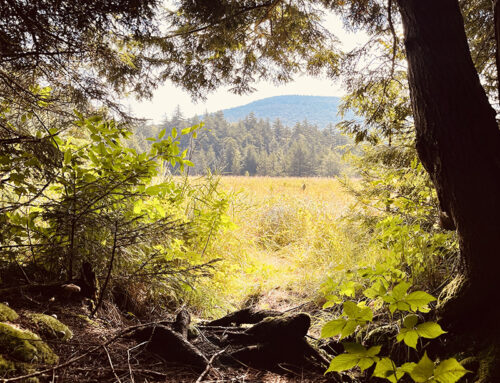Opt Out of the Rat Race: 10 Simple Ways to Reduce Consumption, Save Money, & Build Community
Raise your hand if you’ve worried about your finances in the past year.
If you didn’t raise your hand, that’s great! As Forrest Gump would say – one less thing.
However, I’m betting that a lot of people reading this did raise their hand. We’re hearing a lot right now about the economy. Prices of just about everything have increased, and many of us, myself included, are itching to get out and experience life, especially after the past few years of anxiety and uncertainty.
So much of our culture sends us messages focused on consumption. From the government, we are told to keep those dollars circulating for economic progress. Media is filled with slick marketers, influencers, and not-so-subtle product placement, constantly implying that if we just buy the right clothes, drink the right coffee, travel to the right places, then we will be content – and insinuating that we can’t be content without these things. Looking at our neighbors or watching flashy new cars driving down the street, we may wonder how everyone else seems to effortlessly have everything figured out, while we struggle to be enough for ourselves and our families.
Newsflash, it’s a lie.
The people you see on the street, the influencers, the celebrities, they are human just like you. Part of being human is living in the messiness and unpredictability of life. Once we meet our basic needs of food and shelter, more usually isn’t better. And an often overlooked basic need for all of us is community, which doesn’t have a price tag. When we get right down to it, we don’t need a whole lot of stuff to experience a fulfilling life, and to find joy bonding with others in the weirdness of it all.
Whether you’re looking to cut down on your expenses, build community with those around you, create a healthier environment, or just buck the current toxic consumer trends, here are 10 simple ideas to consider:
#1 – Plant a Garden
Food is definitely one of those basic needs for all of us. And food has gotten more expensive in the past few years. So how can you counter this? Grow your own! A garden can come in many forms, from a multi-acre plot to a few small containers in a sunny window. While most of us are not able to grow all of our food, every bit you do grow represents money saved at the store, and a direct connection with the land and its ability to sustain you. I have a small 8 x 12 foot garden in my backyard. In it I have planted 12 tomato plants, 3 pepper plants, 3 kale plants, 2 squash plants, and some cucumbers, lettuce, and green beans. From this 100 square foot space I get roughly 75% of my vegetables for 3-4 months, and can experiment with making salsa and cucumbers to give as gifts throughout the year.
#2 – Start a Service Exchange
When my kids were little I rarely went out without them. Even in the early 2000s, spending $30-50 on a babysitter for a night on the town was well outside of my budget. Based on what my daughter has told me, I think that would seem cheap in this day and age. But one thing that saved my parenting sanity during that time was doing babysitting exchanges with my friends. Approximately once a month I would drop my kids off at my friend Audrey’s house. My kids got a playdate with their best friends (her kids) and I got a lovely dinner out. A week or so later I would be the playdate host for her kids.
This idea works great for childcare, and can also be applied to other basic services. Think lawn mowing, small household repairs, cooking, and cleaning. When we give of ourselves to others and get our needs met in return, we build community.
#3 – Try Out Transportation Alternatives
I recognize that some people live in places that are dependent on cars. However, it is surprising how far you can get with walking or cycling. if you are lucky enough to live within a mile or two of town services, try to leave yourself some extra time and walk to your errands or appointments. Or if you have a bike you can strap on a pack and usually make 5-10 miles in just a few more minutes than it would take to drive. Either way, you will be getting exercise, saving gas, and exploring your community firsthand.
#4 – Give Experiences
Each year I try to get rid of some of the never ending piles of “stuff” in my house. Recognizing how much these things bog me down, more and more I’m trying to give experiences as gifts. These may come in the form of a membership to a local museum or tickets to a special concert or event. They may also come in the form of an outing for me and the gift recipient, where we travel to a nearby destination for a day out together, or take a class to learn a new skill that interests us both. These experiences strengthen our relationship, and the memories and skills stay with us forever, without collecting dust.
#5 – Use Your Library
 Oh how I love libraries! When I was a kid my goal was to read all the books in our town library. I didn’t achieve that goal, but so much of what I have learned in my life came from the books on those shelves. I have taught myself knitting and beading, gotten countless recipes from cookbooks, and of course, I have lost myself in the pages of 100s of novels over the years. Libraries these days offer so much more than books! My local library has sewing machines, legos, passes to local museums and state parks, and a huge collection of DVDs, all available to borrow. And they offer a ton of free programs, from preschool storytimes and summer camps to language classes and computer help. They are truly a treasure trove of community resources.
Oh how I love libraries! When I was a kid my goal was to read all the books in our town library. I didn’t achieve that goal, but so much of what I have learned in my life came from the books on those shelves. I have taught myself knitting and beading, gotten countless recipes from cookbooks, and of course, I have lost myself in the pages of 100s of novels over the years. Libraries these days offer so much more than books! My local library has sewing machines, legos, passes to local museums and state parks, and a huge collection of DVDs, all available to borrow. And they offer a ton of free programs, from preschool storytimes and summer camps to language classes and computer help. They are truly a treasure trove of community resources.
#6 – Ditch the Gym Membership
Staying active and focusing on health is a good thing. I’m all for it. However, I’m not all for the price tag that our local gyms put on this. In my town this ranges from $50 to $500/month, depending on whether it’s the local chain or a boutique training facility. That’s $600 to $6,000 a year!
When my gym closed during COVID, I discovered a lot of other options out there. These days my training consists of hiking and walking with friends a few times a week, interspersed with YouTube workouts done in the convenience of my living room. And I can take some of the money I’m saving and use it on my next backpacking trip.
#7 – Underschedule Your Kids
If there was one thing I could go back and change for my kids I think this would be it. I fully admit that when my kids were younger I felt the pull to keep them busy. They tried ballet, did various sports, took art and music lessons. Almost every afternoon or evening involved driving them to various activities, waiting, and then driving back. Family time was in the car. At 19 and 23, my kids have no interest in the sports that they tried when they were little, and the ukulele my daughter plays was self-taught when she was a teenager.
The more I learn and explore for myself, the more I realize the importance of rest, free-play, and time to be bored. No matter what our age is, emptying our schedules of activities gives us time to get creative, and to start thinking about what we can do with what we already have in our world, whether in our living room or the larger world around us. It also provides us with essential time to process all the information that we take in throughout the day, and to fully integrate what we have learned into our bodies and minds.
#8 – Buy Secondhand
Second-hand purchases fulfill our needs without consuming new raw materials, and without adding bulk to our landfills. And they provide a multitude of opportunities to connect our community members and support each other, instead of supporting a giant corporation. The next time you need a “thing,” try searching for the item on Facebook marketplace, checking in at your local thrift shop, or putting a post out on your local Freecycle or Buy Nothing group. With so many ways to find what you need second-hand, you may never need to shop at a big box store again.
#9 – Don’t Replace, Repair!
Our culture constantly sends us the message that new and shiny is better. As a result, many people have lost the age-old skills of repair, from mending clothing to fixing a broken chair leg. From my dumpster and the side of the road we have fished out treasures that include a record player, a mid-century modern chair, and a Lecruset skillet, just to name a few. With a little bit of tinkering and polishing, these items have all found new life in our household.
A few years back my town started a repair cafe. This worldwide movement (repaircafe.org) consists of volunteer-run community efforts where people share their repair skills and knowledge from bicycles to beaded necklaces. During repair cafes community members can show up with household items and meet with a volunteer. Through this exchange, friendships are built, knowledge is shared, and our household items get a second life (and stay out of the landfill).
#10 – Plan a Staycation
Traveling to new and exotic destinations can be fun. It can also be really expensive. And so often we are physically and mentally worn out by the details of travel: getting to the airport, hustling to new and unfamiliar hotels, worrying that we won’t fit it all in. As an alternative, I suggest taking a staycation. Do some research and uncover the unknown surprises in your town or region. Go on a hike to a local area you’ve never visited before. Or just spend the day strolling down the street, poking into shops you’ve never been in before and talking to community members. You may discover that with all the places to go in the world, the ones closest to home offer the most adventure of all..
“The more you have, the more occupied you are. The less you have, the more free you are.” – Mother Teresa
The more that we can let go of the things that our culture tells us we should be or do, and discover our connections to ourselves, our community, and our world, the more fulfilled and content we will be within our lives.






Leave A Comment